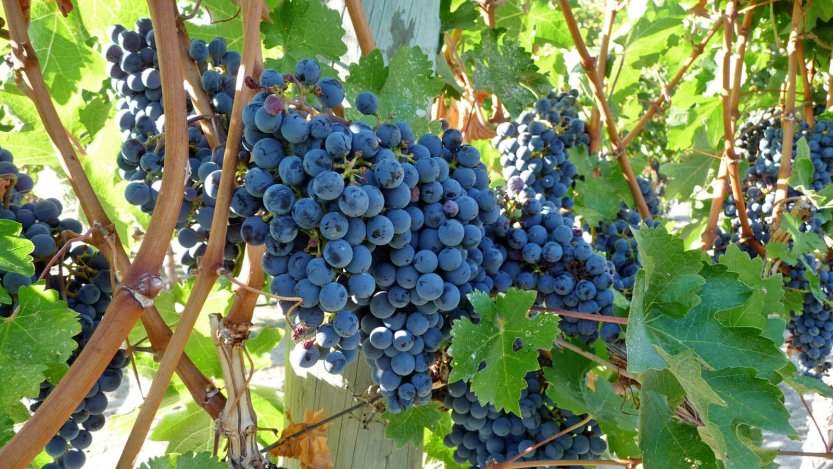Plenty has been written about GMOs and the food supply — fast food or real food — and about additives in food, but not all that much about those in wine, for good reason.
Wine has a certain mystique — the tranquility of the vineyard, the small little Vigneron, working the family land that has been worked for generations. Sure, these wineries still exist, but they are the exception rather than the norm, as most vineyards are commercial enterprises with a high-value cash crop that are about getting decent juice to the market rather than acting as stewards of the soil. Nonetheless, something strange differentiates wine from other agricultural product. Fans of wine know more and are far more willing to talk about the wine than almost any other produce. I don’t know about you, but the amount of breath I use talking about strawberries or blueberries is far less than what I give merlot. Wine is a product of the land, to borrow a line, “the grape is the conduit from the soil to the glass” and though it is subject to fertilizers and pesticides, it is generally made the way nature would make it.
GMOs or “genetically modified organisms” are organisms that have had their genetic structure modified to provide a beneficial adaptation to a plant or animal that wouldn’t occur in nature. It might be a drought-resistant seed crop made by blending different species; it might be a higher yielding grain; it might even be a cotton that resists a certain weevil by producing a specific, repellent toxic for that pest, as a result of crossing a plant and an animal genetic code. Several countries are banning GMOs because of ethical reasons or because of a lack of independent, long-term studies on their effects, others because their citizens don’t want to consume GMOs knowingly or unknowingly. The U.S. and Canada are well behind other parts of the world in educating consumers on foods containing GMOs. Recently, several articles and online posts have appeared identifying beers that should be avoided if you are conscious of whether or not you want a GMO diet. Generally, GMO content in beer is due to modified rice or wheat products that eventually head to the brewers looking for the cheapest or most cost-effective.
Are there GMOs in wine?
Does wine contain GMO grapes? Not that I have ever come across. In fact, I would say that grape growers are typically so proud of their vines and the providence of their vines, that it would be a cold day in hell before they would knowingly plant a GMO grapevine. That’s not to say that it won’t happen, but most vineyards are planted with clones these days. Clones of, say, pinot noir can be selected for certain vineyard conditions, certain yields, and in fact, certain flavour and aroma profiles. The typical grapevine mutates quite easily and by selecting clones from greenhouses, vineyard owners don’t have to worry much about breeding or controlling the offspring of the vines. One downside of the extensive use of clones is that certain pests or diseases can sweep through a susceptible vineyard with reckless abandon and really bugger things up quickly.
What are some additives in wine?
As for other additives, some studies indicate that the pesticides and herbicides used in non-organic winemaking can find their way into the finished wines. Unlike produce you can rinse off in the sink, the wine you drink still has all those chemicals that were on the grape skins at harvest. And no, you can’t rinse the grapes off before you crush them, though most wineries strive to hold off on spraying chemicals in the days and weeks before harvest. Still, I have witnessed wine “journalists” snacking on grapes that have recently sprayed with copper sulphate in a vineyard in Portugal. I stopped them pretty quickly and told them what the bluish colour was on the leaves.
Winemaking is a high-tech process these days with strong roots in tradition. The science behind winemaking is creating better wines for us; and generally, they are about minimizing intervention, controlling fermentation and its by-products, and cleanliness. Additives and fining agents (that keeps you from getting cloudy wines), are used, but most are somewhat natural products or their active ingredients. Wineries (at least good ones) aren’t adding high-fructose corn syrup or brominated vegetable oil to their wines, so don’t worry too much.
How harmful are the sulphites in wine?
As for the dreaded s-word (sulphites), damn them all to hell. The words “contains sulphites” on a bottle of wine don’t mean what you think it means. Sulphites are a natural part of winemaking and it is very difficult to make a wine without any sulphites. I’m going to say it bluntly — you are not allergic to sulphites, unless you are sure you have a bona-fide allergy that you have spoken about with a doctor. A maraschino cherry — almost any processed food — has more sulphites than a typical bottle of wine. Sulphites in wine aren’t really the culprit in your headache. I’ll give you a hint about what does: alcohol, histamines and tannins, and it is probably a combination of those ingredients in certain proportions that give you that headache. Stay hydrated, my friends.
So, should you be worried about GMO wines or additives in your wine? “No” to the former, and “maybe” to the latter. Due to the potential chemical presence of various ‘cides in bottled wines, it couldn’t hurt to buy and consume more organic or biodynamic wines. Then again, you could just drink less.













